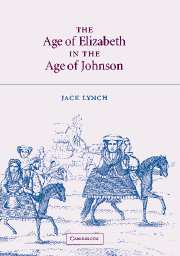Book contents
- Frontmatter
- Contents
- Preface
- Note on the texts and citation
- List of abbreviations
- Introduction
- 1 Struggling to emerge from barbarity: historiography and the idea of the classic
- 2 Learning's triumph: historicism and the spirit of the age
- 3 Call Britannia's glories back to view: Tudor history and Hanoverian historians
- 4 The rage of Reformation: religious controversy and political stability
- 5 The ground-work of stile: language and national identity
- 6 Studied barbarity: Jonson, Spenser, and the idea of progress
- 7 The last age: Renaissance lost
- Notes
- Bibliography
- Index
7 - The last age: Renaissance lost
Published online by Cambridge University Press: 22 September 2009
- Frontmatter
- Contents
- Preface
- Note on the texts and citation
- List of abbreviations
- Introduction
- 1 Struggling to emerge from barbarity: historiography and the idea of the classic
- 2 Learning's triumph: historicism and the spirit of the age
- 3 Call Britannia's glories back to view: Tudor history and Hanoverian historians
- 4 The rage of Reformation: religious controversy and political stability
- 5 The ground-work of stile: language and national identity
- 6 Studied barbarity: Jonson, Spenser, and the idea of progress
- 7 The last age: Renaissance lost
- Notes
- Bibliography
- Index
Summary
With Milton, the age of Elizabeth reaches its apogee and its end. In the decades after Milton's death, as Paradise Lost became part of the national canon, British readers first perceived a difference between their age and the last. Milton's epic stood at the center of the many discourses – political, theological, poetic – that contributed to this epochal division. Recognizing the historicity of the past was essential to eighteenth-century political and poetic self-conceptions, for by the middle of the eighteenth century, the distant Milton was the most painful reminder of everything the age of Johnson was not.
A NEW SCENE
This awareness of distance from the sixteenth and seventeenth centuries marks one of the largest shifts in literary and intellectual historiography since the Quattrocento humanists rethought the patristic scheme of periodization in secular terms. We saw earlier how the eighteenth century adopted the Renaissance's sense of modernity; it is time now to see how they revised it.
Petrarch and Ficino saw in their own works the beginning of a new age; Johnson and his contemporaries likewise saw in the middle seventeenth century the closing of that age and the opening of another – their own. Indistinct at first, it became a commonplace beginning in the 1730s, and by the end of the eighteenth century the line was firmly in place. The era of Spenser, Shakespeare, and Milton was “the last age.”
- Type
- Chapter
- Information
- The Age of Elizabeth in the Age of Johnson , pp. 143 - 164Publisher: Cambridge University PressPrint publication year: 2002

